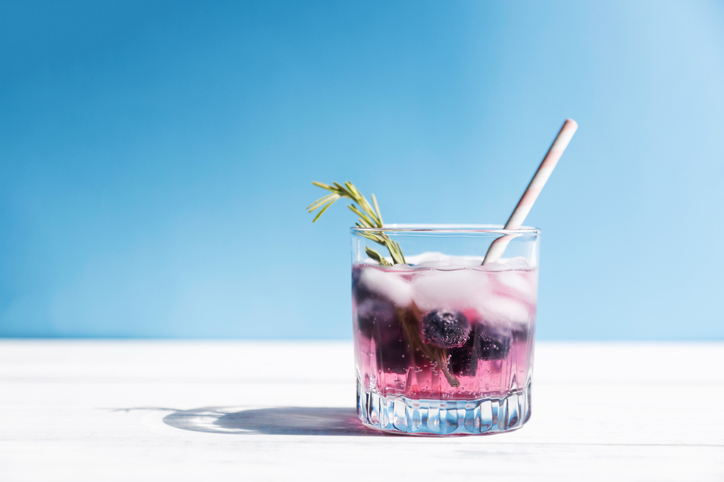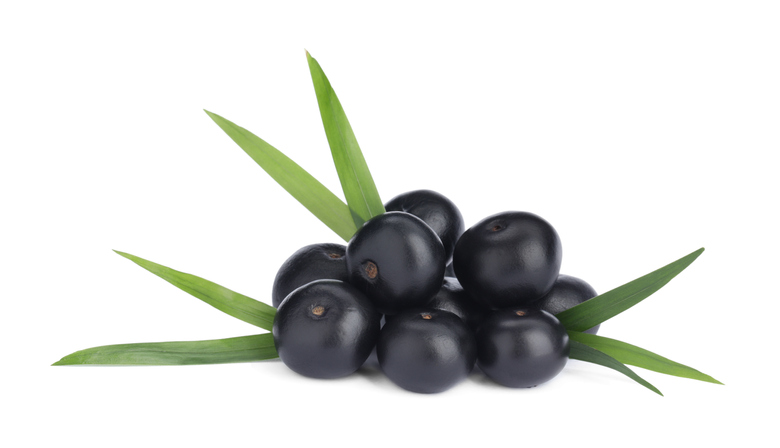Why You Might Want To Drink Acai Berry Lemonade This Labor Day Weekend

By Joy Stephenson-Laws, J.D., Founder
I’m not much of a drinker. I just don’t have the tolerance for it. Drinking alcohol makes me want to go to sleep, and I don’t care for the potential health consequences of drinking alcohol such as promoting inflammation throughout the body and depleting the body of essential vitamins and minerals, including zinc, vitamin C, magnesium, iron and more.
For many, Labor Day weekend is a booze-filled holiday, however, in my pursuit of a new mocktail I came across a drink I think might entice you to walk past the beer cooler or sangria punch bowl. Strawberry acai lemonade.
You might be familiar with the health benefits of strawberries, but the acai berry, although very trendy, is somewhat less common. This is probably because acai berries, which are native to tropical areas of Central and South America, can spoil within one day! This is why in the United States people usually consume acai as a frozen fruit puree or in a freeze dried powder form. I am sure you have seen those gorgeous acai bowls all over Instagram or even at your local juice and smoothie bar.
Pronounced ah-sigh-ee and considered to be a superfood, the acai berry packs so many nutrients that some call it nature’s “purple gold.” When I came across the recipe for strawberry acai lemonade, I did some digging on the potential health benefits of consuming this berry.

To my surprise, acai is a source of healthy fat.
Most berries are fat-free, but acai berries contain omega fatty acids such as omega-3 which is known to reduce the chance of having a heart attack or stroke.
Acai berries are naturally sugar-free.
It’s not often you come by a fruit free of sugar. Although sugar in fruit is much healthier compared to sugar in candy, some people (for example, those that are prediabetic or diabetic) really have to watch their sugar intake even when it comes to consuming fruits. Furthermore, “A preliminary study suggested that eating acai fruit pulp might reduce blood sugar and cholesterol levels in people who are overweight,” reports the National Institutes of Health (NIH).
Just be mindful of the frozen acai purees you buy in the grocery store. You want to pick one without added sugars if possible.
The acai berry is an antioxidant powerhouse.
Acai is very rich in antioxidants such as vitamin C. In addition to this, acai berries are said to have more antioxidants than cranberries, raspberries, blueberries, strawberries and blackberries (please keep in mind that all of these berries are very nutrient-dense and can be a great addition to a healthy diet). Antioxidants help prevent inflammation (a major contributor to the development of cancer and other serious illnesses such as Alzhiemer’s).
Eat for your brain.
“Laboratory studies have focused on acai's potential antioxidant properties, and a juice blend with acai as the main ingredient has been shown to have an antioxidant effect in people,” according to the NIH.
Acai is a brain food, literally!
Several reputable studies such as this one have illustrated that the antioxidants in acai berries may help prevent inflammation in the brain that can lead to cognitive disease.
There are so many nutrients, such as essential minerals, present in acai berries.
Acai contains potassium, zinc, magnesium and calcium (just to name a few). To learn more about why these minerals are so key to a healthy life, read here.
As always, consult your doctor or a competent healthcare professional when it comes to introducing new foods into your diet, especially if you have any existing health issues and/or are taking any medications as well as if you are pregnant or breastfeeding.
Be mindful of acai supplements. A lot can go wrong if you supplement without medical guidance. Check out these pH Labs blogs.
I hope this inspires you to try a healthy new beverage this holiday. It might save you a hangover!
Enjoy your healthy life and happy Labor Day!
The pH professional health care team includes recognized experts from a variety of health care and related disciplines, including physicians, attorneys, nutritionists, nurses, and certified fitness instructors. This team also includes the members of the pH Medical Advisory Board, which constantly monitors all pH programs, products, and services. To learn more about the pH Medical Advisory Board, click here.



